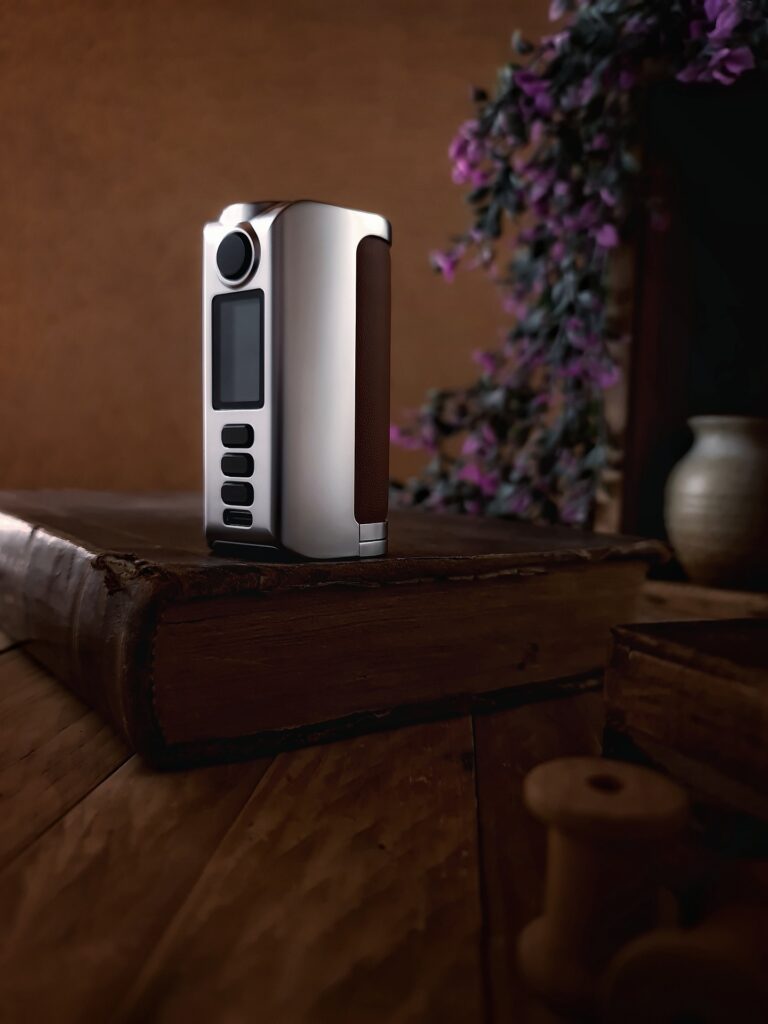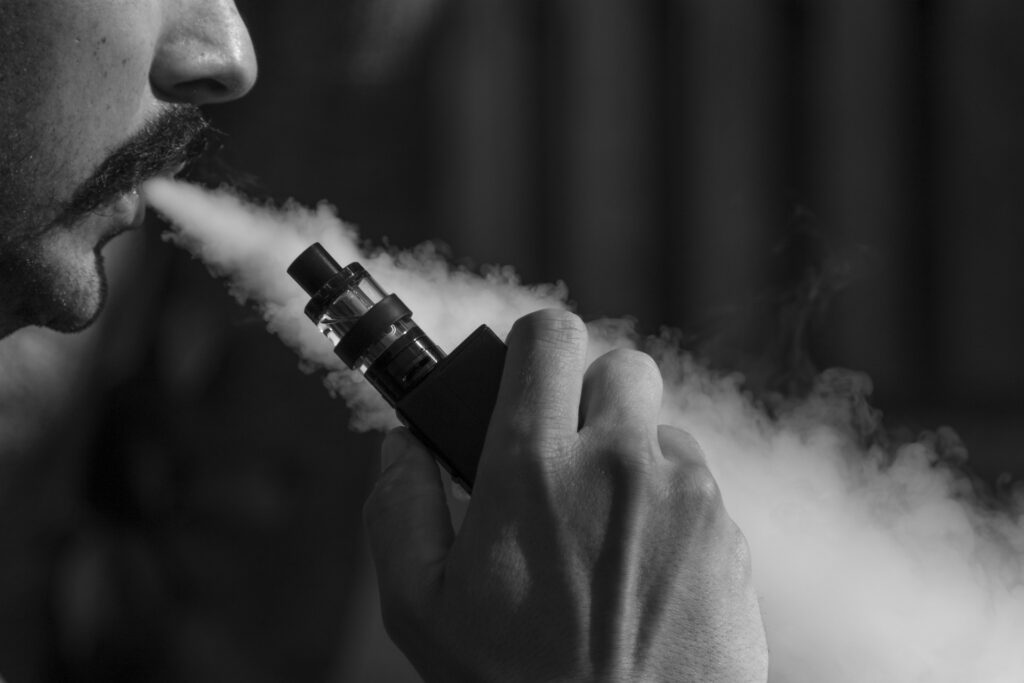Cannabis plant compounds like CBD are recognized to provide many health advantages, most notably the capacity to calm and relax the user. Cannabidiol (CBD) has benefits like THC minus any psychoactive effects. CBD is psychotropic and helps with anxiety but does not give you a “high.” You can get CBD vape juice.

Hemp was top-rated for its fiber for many years before it became famous for other effects. More recently, as a source of CBD. The already booming CBD sector went into overdrive by the 2018 Farm Bill, which made it legal to farm industrial hemp in the US. As long as the Cannabidiol product has less than 0.3% THC, it is now widely accessible legally throughout the nation. CBD made from hemp often does not have detectable THC levels.
What Exactly Is CBD Vape Juice, and What Are Its Advantages?
Industrial marijuana or hemp plants—both cannabis—are used to extract CBD, which then processes for various ingestion options. Vaping gets your selected CBD dosage to the circulation and brain considerably more quickly than other ways, making it the quickest way to feel the benefits of CBD.
Inhalation offers better bioavailability, so you may absorb more Cannabidiol from the same amount as you would utilizing other techniques in addition to higher absorption. Even though there is still much to discover about the long-term consequences of CBD vaping, vaping is far safer than smoking while still being just as effective.
Although some people refer to CBD e-liquid as CBD oil , it does not contain authentic oils, which are hazardous to inhale. CBD vape juice includes propylene glycol and vegetable glycerin (VG), much like all other e-liquids (PG). However, CBD tinctures and edibles originate with genuine oils, which are safe to consume. If you like, you may also take CBD vape juice orally. Numerous studies show that Cannabidiol has beneficial benefits that may cure various diseases and symptoms.
What results does CBD produce?
CBD’s most often mentioned benefits include a feeling of calmness or relaxation, alleviating anxiety or pain, and an uptick in mood. CBD may significantly make people sleepy or tired, while lower concentrations can make people more attentive. The majority of CBD consumers aim for these outcomes:
- Tranquility or relaxation
- Decreased stress and anxiety
- Better mood
- Comfort
- Pain reduction
- Sleepiness (at large dosages)
- Alertness (at low dosages)
Many consumers use CBD oil expressly for anxiety. Hemp-derived CBD oil usually does not
include enough THC to make you feel high. Still, it may give you a powerful sensation of peace without the unease, paranoia, or other adverse effects people receive from marijuana. Many individuals utilize CBD for this reason.
CBD vape oil has immediate effects. There is a catch, though: how you ingest it determines how quickly and strongly these effects occur. Even while the impact will ultimately be similar in general, a CBD oil tincture or an edible will require longer to work and possibly need more CBD content.
These are some typical methods of consuming CBD, ranked from the quickest to the slowest absorption into the body and brain:
- Taking CBD pens or cartridges or vaping on a mod with CBD vape juice
- CBD-rich flowers or high-CBD strains are vaped or smoked.
- Using sublingual CBD oil tinctures (under the tongue)
- Using a transdermal CBD patch
- CBD gummies or other goodies
- Taking CBD tablets or capsules
Using CBD topicals or creams
Another thing to remember is that CBD exits your body more rapidly the quicker you ingest and digest it. Foods and other items that go through the digestive system and liver stay in the body for longer. The fastest method to experience CBD’s effects and for it to leave your body is by vaping.
What advantages does CBD have?
Scientific evidence points to the wide variety of medicinal benefits of CBD. Here are the advantages and possible advantages that CBD may have for many illnesses, according to research.
Disorders of epilepsy and seizures
According to research, CBD actively decreased or prevented rodent convulsions as early as 1973. Later studies found that individuals with epilepsy who took 200–300 mg of CBD daily had few seizures.
The first medication with a refined cannabis-derived ingredient to get FDA clearance is Epidiolex. Epidiolex, a CBD-based medication, received FDA approval in June 2018 to treat kids two and older who suffer from Dravet and Lennox-Gastaut syndromes. Epidiolex was taken off the list of banned drugs by the DEA in April 2020, making it considerably simpler for medical professionals to recommend it to people with epilepsy.
Insomnia
Being drowsy is the most frequent side effect of CBD vaping, mainly when used in more significant amounts. Instead of making people sleepy when used in small amounts, CBD may increase attentiveness. CBD can lengthen sleep in persons with insomnia when taken at a dose of roughly 160 mg. In far more significant quantities, a comparable impact is visible in individuals who did not have insomnia.
Anxiety
Numerous studies show that CBD may successfully alleviate anxiety. Advanced brain imaging studies have validated CBD’s ability to reduce stress. Researchers think CBD may be able to treat PTSD and OCD in addition to other anxiety disorders. Cannabidiol’s mood-regulating properties may help treat depression.
Psychosis
A 1982 research found that CBD reduces the psychotic symptoms brought on by THC. In the same year, another study offered many brain mechanisms by which CBD may cure psychosis. Researchers think CBD may treat mental conditions, including depression.
Heart condition
CBD has a “tissue-sparing effect during prolonged myocardial ischemia and reperfusion,” cardioprotective. When administered before ischemia, British researchers say Cannabidiol decreased the frequency of ischemia-lead arrhythmias in rats.
Diabetes
According to researchers, type 2 diabetes may benefit from CBD’s anti-inflammatory effects. According to scientists, the molecule may treat various disorders brought on by or made worse by chronic inflammation. Treating chronic inflammation with CBD may enhance metabolism and prevent diabetes since persistent inflammation may promote insulin resistance.
CBD may assist in easing nausea symptoms in low dosages. Early animal research suggests that CBDA, an acidic version of CBD, is a more potent anti-nausea medication than CBD or THC. Serotonin, one of the neurotransmitters involved in inducing nausea, is released when CBD interacts with receptors.
Actions that are neuroprotective and anti-oxidative
Unrelated to cannabinoid receptors, CBD seems to have neuroprotective and antioxidant properties. CBD may be a potentially beneficial therapeutic agent for treating oxidative neurological disorders like cerebral ischemia. Additionally, CBD can potentially treat neurological conditions like Parkinson’s.

Do you need to vape CBD oil?
Researchers are scratching the surface of CBD’s enormous promise for treating several illnesses and disorders. When cannabis is lawful on a federal level, money for research will soar, and researchers will start looking into the many potential medical applications of CBD and more cannabinoids.
Conclusion
Numerous individuals have discovered that using CBD may improve their quality of life. There are various methods to utilize CBD if you feel it suits you, including vaping, tinctures, topical applications, and edible products.
